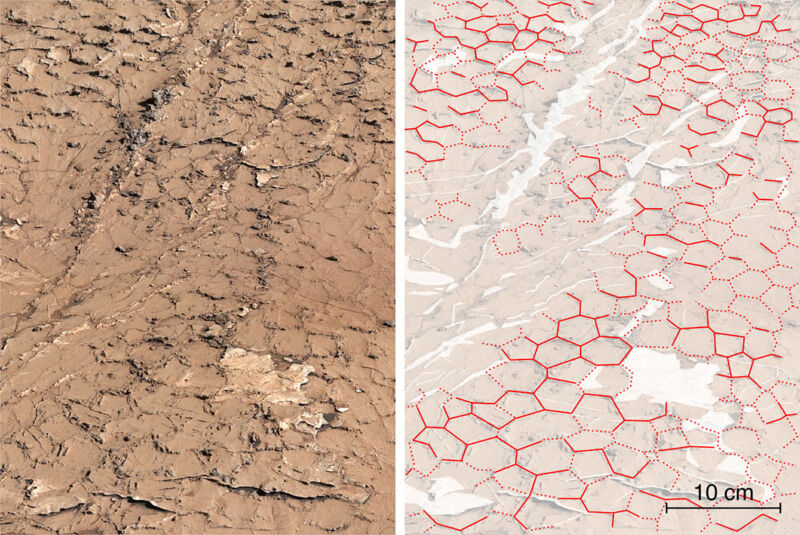Mars rover finds signs of seasonal floods

Enlarge / The newly described deposits (left) have their shapes highlighted in red at right. (credit: NASA/JPL-Caltech/MSSS/IRAP)
The prodigious evidence for water on Mars has eliminated scientific debate about whether Mars had a watery past. It clearly did. But it has left us with an awkward question: What exactly did that past look like? Some results argue that there were long-lived oceans and lakes on Mars. Others argue that the water largely consisted of ice-covered bodies that only allowed water to burst out onto the surface on occasions.
The picture is further confused by the fact that some or all of these may have been true at different times or in different locations. Creating a clear picture would help shape our understanding of an environment that might have been far more conducive to life than anything that exists on present-day Mars.
A new paper describes evidence that at least one part of Mars went through many wet/dry cycles, which may be critical for the natural production of molecules essential to life on Earth-though they don't necessarily mean conditions in which life itself could thrive.